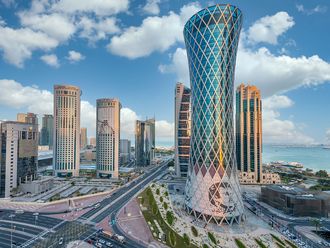Doha: Five Asian workers died of asphyxiation by toxic gases in a manhole here on Wednesday evening after descending into the sewage network without safety equipment, a diplomat said here yesterday.
Three Nepalese and two Sri Lankans died in the accident in Al Mamoura area, a residential district of capital Doha, Rajendra Pandey, First Secretary at the Nepal embassy, told Gulf News.
The workers suffocated one after the other while trying to save a colleague who had entered the manhole and did not return. The bodies were carried away for hundred metres from the sewage flow and rescue operations were extremely difficult, police said.
"It is a terrible incident. "This is the third time that workers have died in this kind of mishap because they descended into the sewage network without being properly equipped," said Pandey.
Civil Defence officials equipped with oxygen masks had to work for hours to track the bodies in the sewage network and extract them, Col Abdullah Al Suwaidi, Director of Civil Defence, told reporters at the site of the accident.
Investigation
Interior ministry officials said they launched an investigation into the incident, suspecting that the workers died after being suffocated by a toxic gas.
Jalal Yousuf Al Salehi, from the Public Works Department, said the Nepalese were working for a private construction company in the area and had no authorisation to enter the manhole. Pandey said construction companies are to blame for these mishaps since they fail to provide workers with safety equipment flagrantly violating the labour law.
"They put the lives of workers at high risk. At the same time a majority of these unskilled workers, due to ignorance, are unaware of any safety requirements."
The last incident involving Nepalese occurred a week ago when a worker died at a labour accommodation prompting some 1,000 workers to go on a rampage.
According to data provided by the Nepali embassy in Doha, construction and worksite accidents claimed the lives of 116 Nepalese workers last year. Qatar is home to an estimated 80,000 Nepalese nationals, a majority of whom are low paid construction workers.












